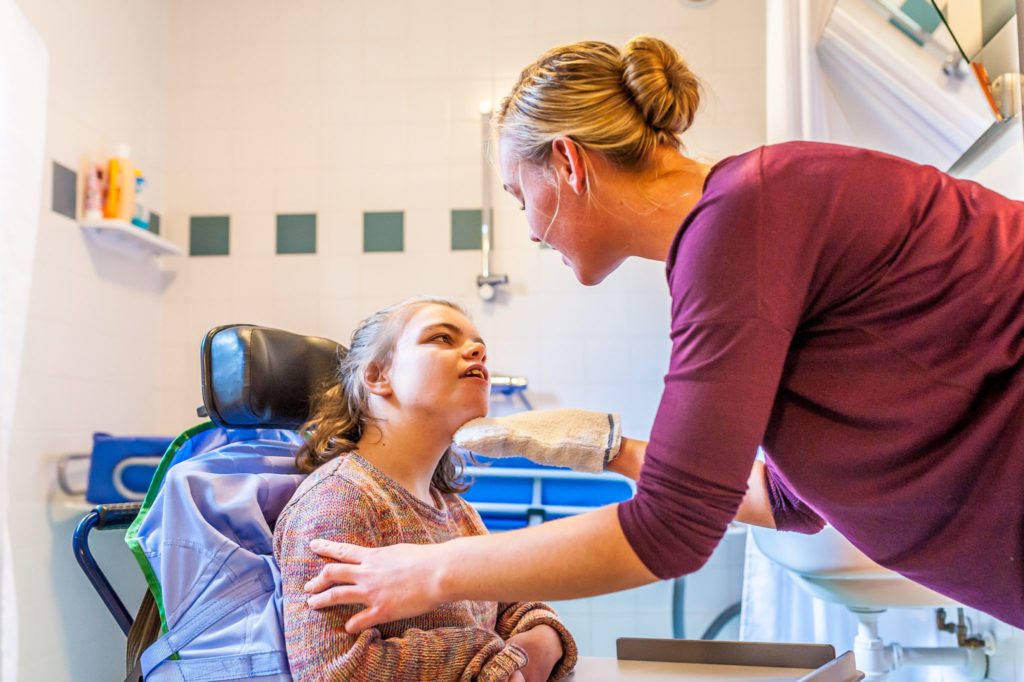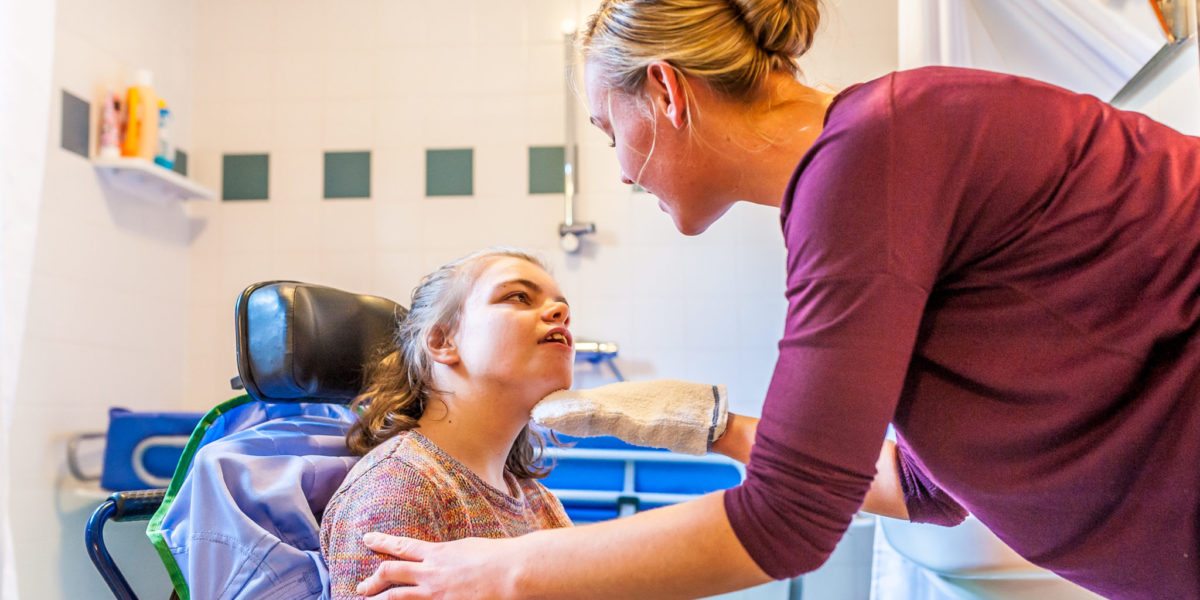The process of learning the process of personal hygiene and grooming is typically instilled in a child’s daily life as they grow. Parents teach children how to complete tasks like going to the bathroom, washing hands, brushing teeth, showering, combing hair, applying deodorant/antiperspirant, and putting on clothing and shoes in a specific order. Some children may pick up on these tasks more quickly than others; sometimes it can take some time before children take to making personal hygiene and grooming into a routine. Some tips for helping children establish hygiene routines include:
Some tips for helping children establish hygiene routines include:
- Starting early: When a child begins early, they can build up a pattern of behaviors that sets the stage for good hygiene maintenance behaviors throughout life.
- Breaking the process down into small steps: Grooming and hygiene involves a multi-step process, and it can sometimes make it harder to follow. Provide visual cues to help prompt step-by-step behaviors.
- Explaining why certain tasks are necessary: Not all kids will get why they have to do a specific task (like brushing their teeth) right away; breaking down the reasons for good hygiene practices helps kids understand, and therefore comply.
 Some children with certain sensitivities to certain textures, tastes, smells, and other sensory aspects may need some additional support in learning the tasks of personal hygiene, especially when it comes to oral health care and hair detangling. Some hygiene activities may need to be adapted to a child’s specific needs. For example, some children do not like the feeling of toothbrushes scrubbing their teeth or the sensation of a comb going through their hair. Strategies for adapting such tasks including using sensory-friendly personal care implements or developing a different grooming routine. For more specific suggestions on different grooming skills, explore below. While the following links may not specifically deal with hypoxic-ischemic encephalopathy, many of the suggestions on these sites have been useful for this population nonetheless.
Some children with certain sensitivities to certain textures, tastes, smells, and other sensory aspects may need some additional support in learning the tasks of personal hygiene, especially when it comes to oral health care and hair detangling. Some hygiene activities may need to be adapted to a child’s specific needs. For example, some children do not like the feeling of toothbrushes scrubbing their teeth or the sensation of a comb going through their hair. Strategies for adapting such tasks including using sensory-friendly personal care implements or developing a different grooming routine. For more specific suggestions on different grooming skills, explore below. While the following links may not specifically deal with hypoxic-ischemic encephalopathy, many of the suggestions on these sites have been useful for this population nonetheless.
It is also important to note that, if parents are concerned about their child’s ability and/or compliance to complete certain daily hygiene grooming tasks, they should consult with an occupational or behavioral therapist. These professionals can provide tips and suggestions for helping to encourage good hygiene that, many times, are not simply available online. These therapists take into account your child’s entire medical history and behavioral patterns, something that online resources cannot do. Your child’s pediatrician will often have a list of therapists they can refer your child to.
When a child grows older and finishes school, it is possible that they may benefit from a Personal Care Assistant, a Direct Support Professional (DSP), or a home health aide (HHA), especially if they live away from their parents or if their parents need assistance during work hours. These individuals help people with disabilities complete the tasks of daily living, and can provide assistance with keeping a schedule and the activities of day-to-day life.
General Personal Hygiene and Grooming Resources
- [Autism Roadmap] A Guide to Grooming and Hygiene: Toilet Training, Tooth Brushing, Showering, Shaving and Haircare
- Lesson Ideas for Personal Hygiene/Grooming: Bathing, Oral Care, Hand and Foot Care, Deodorant, Shaving, Skin and Hair, Adolescence-Related Topics
- Teaching Older Children with Special Needs about Hygiene
- Children’s Books About Hygiene (Ages 3-6)
- Preschoolers and Hygiene
- Personal Hygiene and Grooming with Moderate to Severe Autism
- Overcoming Roadblocks to Good Personal Hygiene in ASD
- General Hygiene Tips
- Vanderbilt University: A Parent’s Guide to Puberty
Oral Care Resources
- Tips & Strategies to Help Children with Poor Tolerance for Tooth Brushing
- Getting Dental Care for Children with Special Needs
- Parent Perspective: Making Toothbrushing Fun!
- Improving Sensory Tolerance for Tooth Brushing
- Adapted Toothbrushes – How Do They Help?
Hair and Nail Care Resources
- Hair Brushing and Sensory Processing Disorder
- Getting a Haircut
- Tantrum-Free Haircuts
- Tips for Clipping Nails
- Modern Mom: Haircutting and Nail Clipping
Toileting Resources
- How Do I Know if MY Child is Ready to Learn Toileting?
- Toileting for Kids with Disabilities
- Complete Guide to Special Needs Toilet Training
- Toilet Training for Children with Disabilities; Additional Tips for Toilet Training
- Toilet Training for Children with Multiple Disabilities
- 9 Tips for Toileting with Kids with Special Needs
- Parent Perspective: An Unlikely Tool for Helping with Toilet Training
- Parent Perspective 2: The Potty-Training Process
- UMich Medicine: Toilet Training Tips

